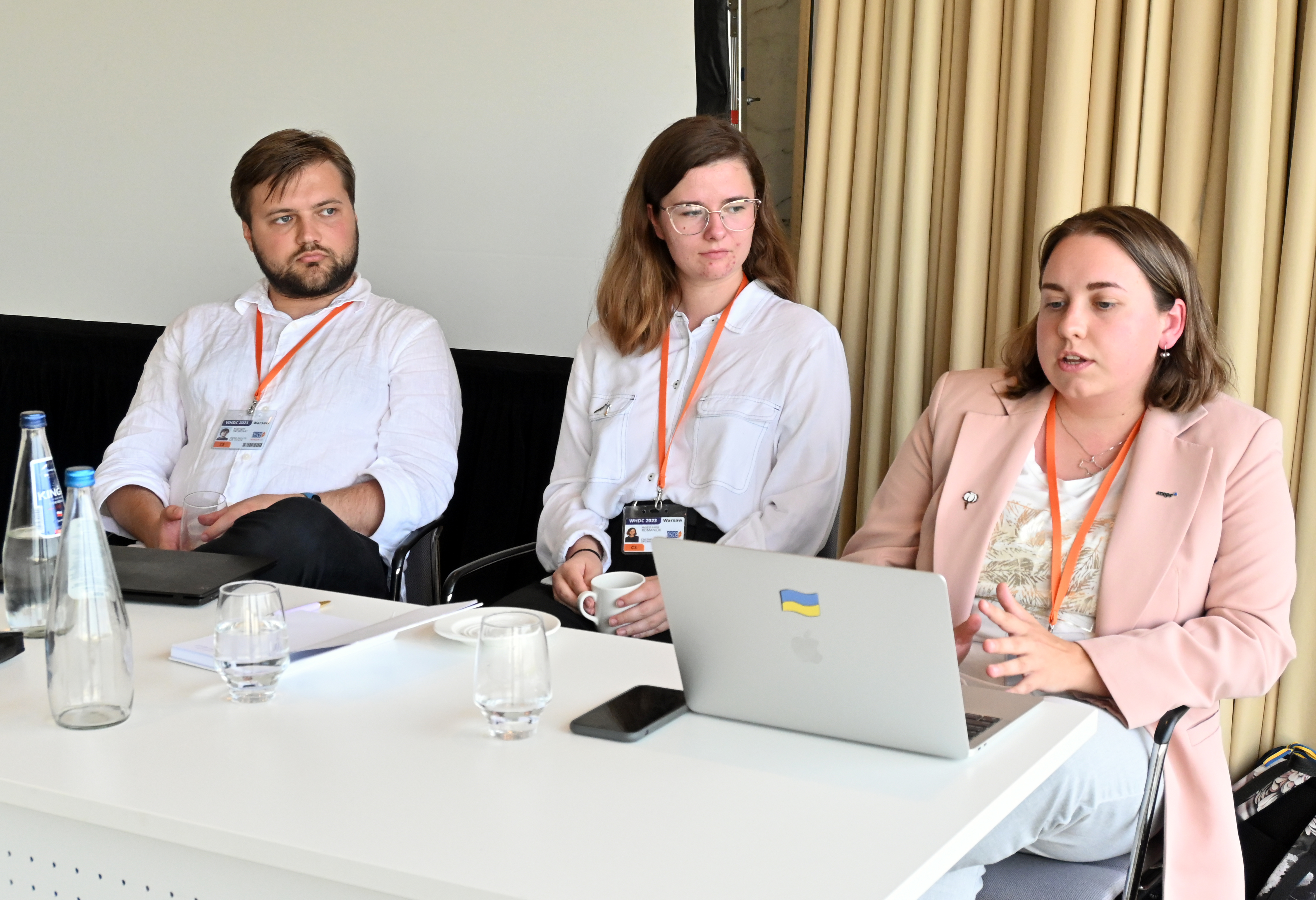In order to ensure fair and legitimate elections in Ukraine, it is necessary to provide Ukrainian politicians and parties with the opportunity to campaign both inside and outside the country to reach out to those 20% of Ukrainian citizens who are forced to stay abroad.
On October 3, this topic was discussed at the Warsaw Human Dimension Conference with the participation of representatives of Civil Network OPORA.
According to the UN, about 8 million people have been recorded as refugees from Ukraine in Europe alone. Many of them won’t be able to return to Ukraine immediately after the end of the war because they have no home, no job, or due to the fact that the city or village where they used to live before the start of full-scale Russian invasion has been destroyed (for example, Bakhmut), etc. That said, all these people still have Ukrainian nationality, meaning that they have the right to elect the government and determine the future of Ukraine.
According to OPORA’s digital platforms analyst Olga Snopok, transparent campaigning is an important component of the democratic election process that allows political parties and candidates to communicate their views, values and priorities to voters.
“Every election race in Ukraine is marked by thousands of political advertisements placed by parties and candidates on billboards, TV, radio and social media. The role of social media is even more significant when it comes to holding elections in the overseas constituencies for Ukrainians abroad. Social networks such as Facebook, Instagram, YouTube and TikTok, as well as messengers such as Telegram, will be the main platforms used for campaigning purposes. However, due to the limitations imposed by the EU legislation and the policies adopted by social media companies, online campaigning tools will be unavailable to Ukrainian politicians and parties.
Firstly, the current EU legislation prohibits advertisers from targeting the audience on the basis of ethnicity or nationality, meaning that Ukrainian politicians and parties won’t be able to aim their election campaigns at Ukrainian citizens who went abroad. Secondly, the adoption of new EU law will lead to prohibition of cross-border political advertising,” Olga Snopok said.
According to digital platforms analyst Anastasiya Romaniuk, the unresolved problem of pre-election campaigning and informing the voters abroad highlights the difficulties in adapting usual electoral practices to new realities.
“The absence of transparent means and clear-cut mechanisms for campaigning abroad and reporting on campaign finance undermines the principle of equality of candidates and parties, as well as calls into question the legitimacy and transparency of the election process as a whole. According to current legislation of Ukraine, social media remain in the “gray zone”. Under such conditions, it is likely that the majority of political campaigns will be conducted in anonymous Telegram channels where it is impossible to keep track of paid political advertising and campaign expenses,” Anastasiya Romaniuk noted.
In his turn, the head of the Digital Rights Department of Digital Security Lab in Ukraine Maksym Dvorovyi said that social media companies are developing new policies for online political advertising, but they still don’t quite understand how to deal with cross-border advertising.
“Another problem is that the elections will be held in accordance with Ukrainian law that will have to be applied extraterritorially in foreign countries, in one way or another. The electoral laws in most countries of the world regulate the elections to national parliaments and other national bodies of power, so the question arises as to how they will treat the elections, political issues and campaigns related to the election process in foreign countries. The issue of extending the application of Ukrainian rules and legal regulations to cover the communities living abroad is also quite problematic because international law doesn’t work that way, it allows for extraterritorial application of foreign legislation in very rare cases.”
Co-regulation and entry into memorandums of understanding with major companies is probably the only model that can be more or less effective under circumstances where Ukraine is not a member of the EU, nor has it implemented the Digital Services Act and other similar documents that regulate political advertising.
Maksym Dvorovyi added that the election regulators need to start negotiations with social media platforms about ways to solve this issue, since Ukraine is one of the biggest countries facing the problem of large number of displaced voters, and may be not the last one to face such a problem.
